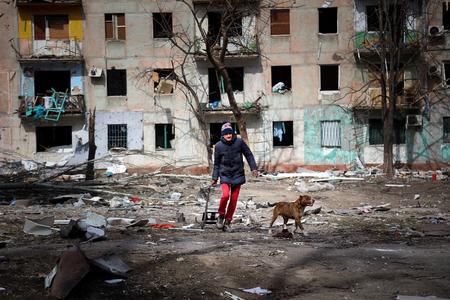As much as 50 percent of people in Slovakia are dissatisfied with how the EU is responding to the war in Ukraine. At the same time, 45 percent said they are satisfied.
This stems from a poll carried out by the Focus agency for the EC Representation in Slovakia.
Sociologist Michal Vašečka opines that people who expect the EU to introduce stricter sanctions against Russia might be among the dissatisfied.
“Yet, the result copies the polarisation of society,” he said, as quoted by the TASR newswire. “Those dissatisfied with the response support the opposition and follow what they hear from leaders they trust. This can be generally said about the coalition as well.”

Society is currently so polarised that if any topic was selected, it would split in two halves with opposing opinions. People who used to promote opinions against Covid vaccines during the pandemic often cast doubt on the war in Ukraine, Vašečka said.
“The links and correlations are very strong,” he added, as quoted by TASR.
Differences between voters
After the war in Ukraine started, everybody expected the preferences of the coalition parties to go up, but this has not happened.
The recent Focus poll from the turn of March and April suggested that the preferences of parties has stagnated, and the junior coalition party Freedom and Solidarity (SaS) even fell in favour.
The current development comes as a surprise, but it also confirms that parties keep their preferences at more or less the same levels regardless of scandals or changes in society. These change radically only before the election, Vašečka said, as reported by TASR.

Martin Slosiarik, head of Focus, also said the results of the survey for the EC Representation in Slovakia can be divided based on the voters of the opposition and the coalition.
The supporters of the coalition parties are satisfied with the EU’s response, while those supporting the opposition are dissatisfied.
“This is also the score of the government that is a representative of the attitude of Slovakia towards Ukraine and how the EU acts,” Slosiarik said, as quoted by TASR.

